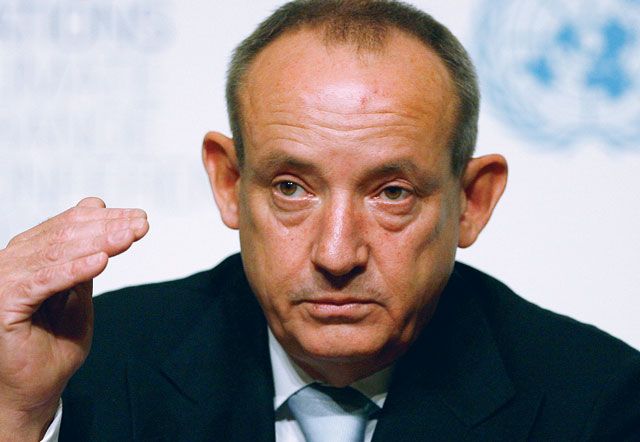The UN's top climate official Sunday conceded that hacked e-mails from climate scientists had damaged the image of global warming research but said evidence of a warming Earth is solid.
In an interview with The Associated Press ahead of the UN climate summit starting Monday, Yvo de Boer said the e-mails pilfered from a British university fuelled scepticism among those who believe the science is manipulated to exaggerate global warming.
"I think a lot of people are sceptical about this issue in any case," de Boer said. "And then when they have the feeling ... that scientists are manipulating information in a certain direction then of course it causes concern in a number of people to say, ‘You see, I told you so, this is not a real issue.'"
E-mails stolen from the climate unit at the University of East Anglia appeared to show some of world's leading scientists discussing ways to shield data from public scrutiny and suppress others' work. Those who deny the influence of man-made climate change have seized on the correspondence to argue that scientists have been conspiring to hide evidence about global warming.
"This correspondence looks very bad," de Boer said. "But I think both the university is looking into this [and] I believe there is a police investigation going on whether the e-mails were leaked or stolen."
De Boer noted that the head of the UN's expert panel on climate change, Rajendra Pachauri, had also announced that he would investigate the matter.
Research
De Boer defended the rigorous review process by some 2,500 scientists of climate change research as solid and thorough. "I think this is about the most credible piece of science that there is out there," he said.
Climate negotiators and world leaders from 192 nations are meeting in Copenhagen in the next two weeks, seeking to agree on an all-encompassing package to combat global warming and help its victims. A key issue is cutting the greenhouse emissions that scientists say are to blame for the warming in average global temperatures observed in recent decades.
US climate negotiator Jonathan Pershing called the science on global warming "very robust, very substantial".
He told the AP that the controversy surrounding the leaked e-mails came at an "unfortunate" time, just before the long-awaited UN talks, "but has no fundamental bearing on the outcome".
"Many of us have been exposed to those kind of events" where e-mails have been unintentionally published, he said. "All of us are adults. all of us are aware that there are consequences to writing e-mails, that the internet is a very fluid place."
Climate sceptics meeting in downtown Copenhagen for a panel discussion organised by a Danish nationalist party said the leaked e-mails highlighted the limitations of global warming research.
"There has been a lot of this kind of activity going on, there has been suppression of view points," said Roger Pielke, Jr, a professor of environmental studies at the University of Colorado.
Negotiators in Copenhagen are trying to set targets for controlling emissions of carbon dioxide and other global-warming gases, including by the leading contributors, China and the United States. They will also seek agreement on how much rich countries should pay to help poor nations to deal with climate change.
"Those are the two key issues," de Boer said. "And if those can be unlocked I think the rest will come together as well."
Top climate official says the e-mails pilfered from a British university fuelled scepticism among those who believe that science is manipulated to exaggerate global warming. The stolen e-mails appear to show some of the scientists discussing ways to shield data from public scrutiny
Facts and figures
- 2,500 scientists carried out the review process
- 192 nations are meeting in Copenhagen
Do you think the recent controversy would lead to increased scepticism towards the issue of global warming? What is your view on the issue? Join the debate on global warming.













